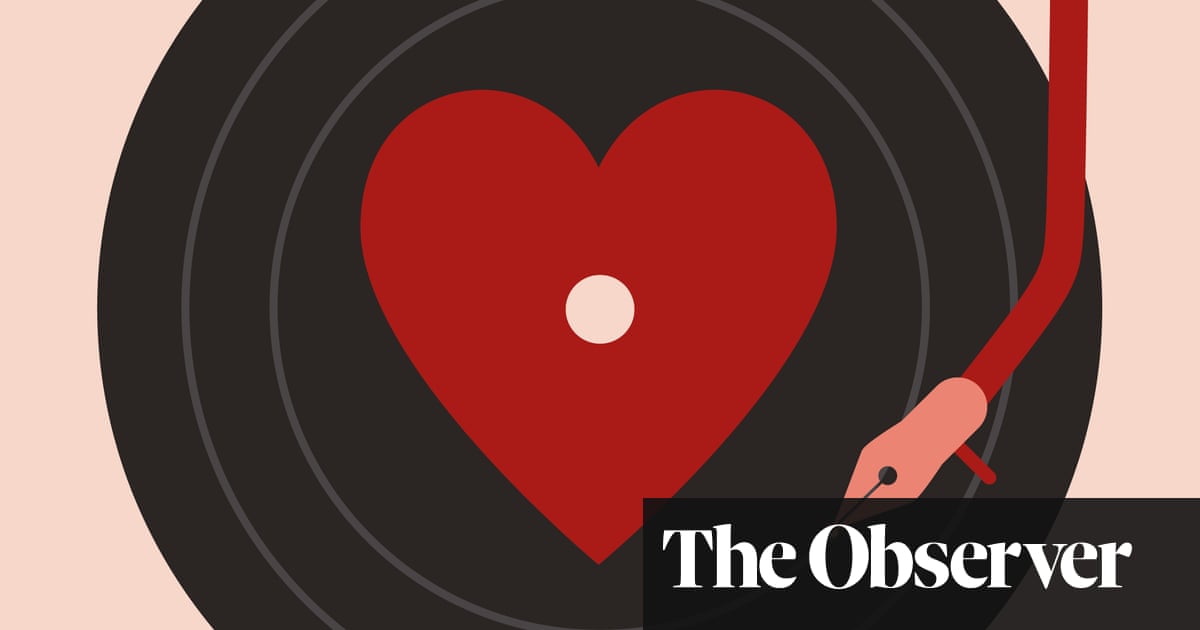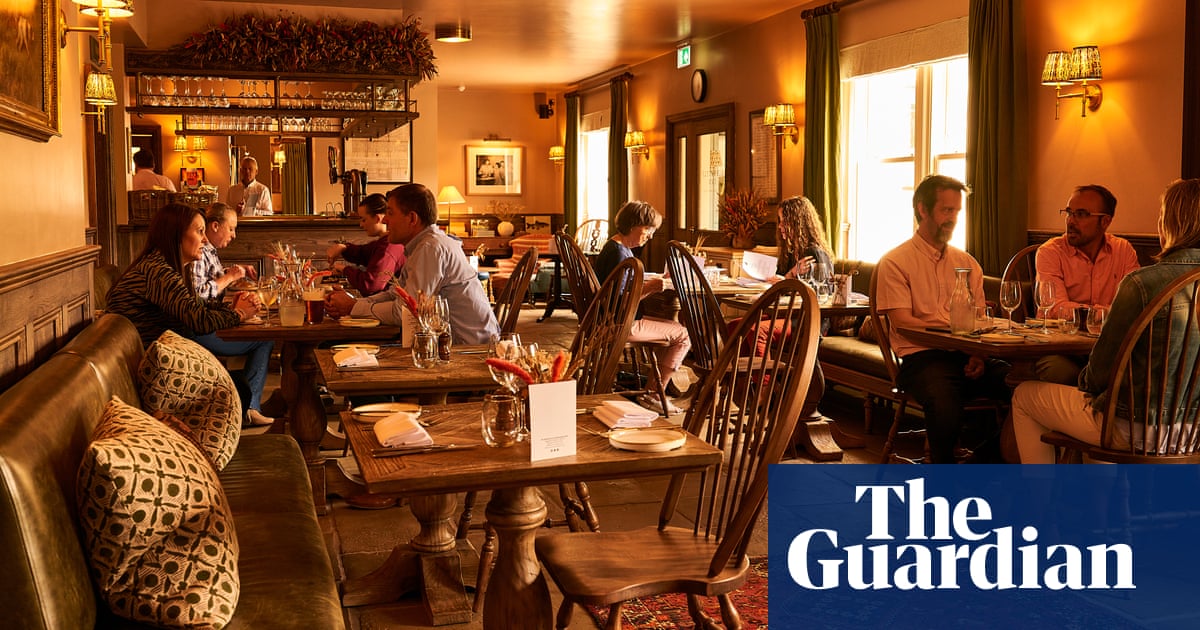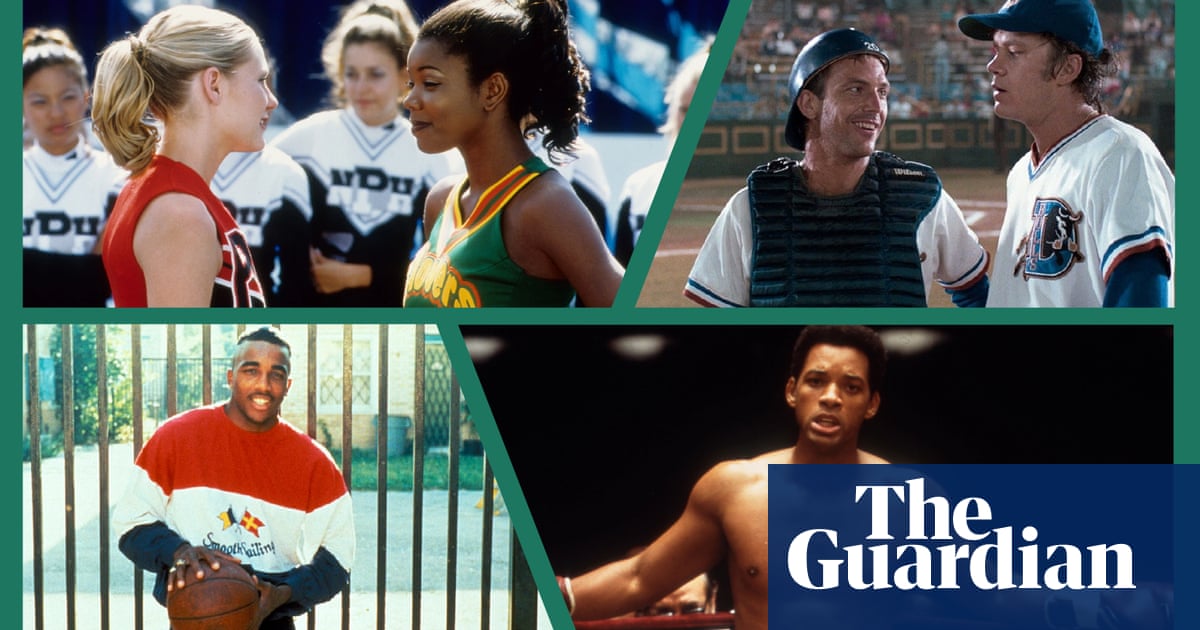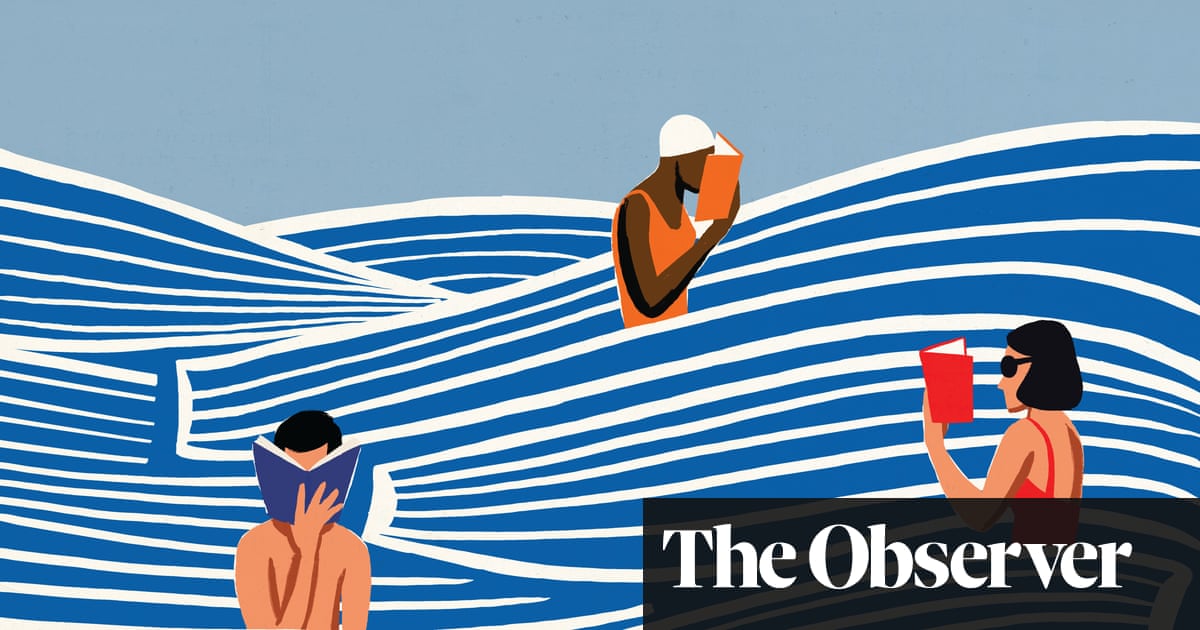
Leith’s Cookery Bible, by Caroline Waldegrave and Prue Leith
Gizzi Erskine, chef and food writer
I trained at Leith’s School of Food and Wine and this book has every base recipe you could possibly think of in its most pure form, which allows you to be playful with it. It’s been invaluable to me – whenever I’m redeveloping something, it will always be on my table for reference. It’s useful when you need the quantities for making a proper jus, for example, or the recipe for a perfect hollandaise, and for getting to grips with cooking terminology.
World Vegetarian, by Madhur Jaffrey
Melissa Hemsley, chef and cookbook author
When I was about 19, I went to Devon with vegetarian friends who brought a battered copy of this book and started cooking from it. When we left, they forgot to take the book with them – so I kept it. It’s ginormous and has no pictures, which can be off-putting, but Jaffrey’s writing sucks you in and there are loads of great recipes you can make using everyday ingredients. I find her spicy punjabi red kidney bean stew very comforting.
French Country Cooking, by Albert Roux and Michel Roux
Jun Tanaka, chef at The Ninth, London
This book is full of traditional recipes from France. It’s not fine dining at all – there are lots of simple, rich, rustic dishes. I got it when I started cooking, around 1991, and it was a real eye-opener – I didn’t realise how diverse French cooking could be. I love that it’s broken down into 12 regions – so for Brittany there are a lot of shellfish and lamb recipes, in Normandy you’ve got lots of butter, cream and cider, and so on. I especially love the recipes from Provence, and the bouillabaisse – fish soup – is one that stands out for me.
River Cafe Cook Book Easy, by Rose Gray and Ruth Rogers
Stevie Parle, chef-owner of Craft London, Palatino and Joy, London
This is the book that I buy for people who are new to cooking. Some of the recipes are almost not recipes, they’re so simple, but they teach you how to eat well. I was working at the River Cafe when they were writing this book, but it was actually the first River Cafe book that really got me into cooking when I was 13 or 14. I’d never seen anything like it – it was incredibly beautiful with really bold photography. I remember trying to cook rotolo – which is like a pasta swiss roll – and it took me all day, but I was so pleased with myself.
Dining In, by Alison Roman
Lily Vanilli, owner of Lily Vanilli Bakery, London and Tbilisi
I discovered this book after I heard about Alison Roman’s salted chocolate chip cookie recipe on Instagram – I was interested in her desserts, but fell in love with the savoury food. The recipes are creative and look great on the table, but they are also genuinely simple to throw together as a beginner. Two of my favourites are the anchovy butter roast chicken and turmeric roasted carrots with seeds and labneh.
Seven Fires: Grilling the Argentine Way, by Francis Mallmann
Tomos Parry, chef-owner of Brat, London
This is the go-to book for fire cooking: it’s inspiring and perfect for beginners. Over lockdown, the weather was so nice that a lot of people got into barbecuing – my friends were texting me for ideas and I pointed them in the direction of this book. The recipes are quite simple but based on good ingredients. There’s one recipe for grilled peaches with rosemary which, when I first read it – more than 10 years ago – was quite unusual. It was a real eye-opener for me.
Roast Chicken and Other Stories, by Simon Hopkinson
Tim Siadatan, chef director of Trullo, London
I first read this book as a teenager and I was just mesmerised. It’s still a go-to for me. The chapters are sectioned into ingredients and you’ve got everything from exotic things like brains and truffles, to simple things like chicken and potatoes. The recipes are timeless, they work, and it was just a revelation. It sits on my bedside table and I often have a little flick through before I go to sleep.
Jamie’s Italy, by Jamie Oliver
Merlin Labron Johnson, chef at Osip, Somerset
This was the book that first got me excited about cooking and food. Jamie Oliver had done a TV series where he went around Italy cooking with local people, noting down the recipes, and I watched a couple of episodes – but the book that followed had really beautiful photography, as well as recipes made from ingredients that are easy to get hold of and don’t take too long to make. If you’re starting out, you want a book like this, where every page inspires you and makes you hungry.
Moro: The Cookbook, by Samantha and Samuel Clark
Ben Tish, culinary director at Norma and the Stafford, London
I’ve given this to several people who were not very experienced cooks and they’ve absolutely loved it. The dishes are Spanish with north African influences and the recipes are very accessible – it gives a really good insight into the basics. One that stands out for me is a recipe for fish lightly marinated in moscatel vinegar, then breaded and pan-fried. Plus, all their ice-cream recipes are fantastic.
The Art of Fermentation, by Sandor Ellix Katz
Alex Bond, chef patron of Alchemilla, Nottingham
This isn’t a cookbook in the classic sense. It does have lots of great recipes, but it’s more like an encyclopedia. Katz spent years travelling the world learning about different methods and applications of fermentation. This book gave me an understanding of how to ferment safely, which is important when you’re creating a bacterial culture. Some people can overcomplicate it but Katz spells it out simply.
Cooking by Hand, by Paul Bertolli
Pamela Yung, chef at Flor, London
This isn’t a glossy coffee table book – there are not a lot of shiny pictures and it’s pretty text-heavy – but it’s rich with information about what to pay attention to, and how to follow your instincts rather than just recipes, which is critical for someone who is learning how to cook. The Zuni Cafe Cookbook by Judy Rodgers, which is a California classic, also tells you how to taste a dish and add ingredients, which is a beautiful way to approach cooking.
The Complete Robuchon, by Joel Robuchon
Richard Bainbridge, chef patron of Benedicts, Norwich
It’s important to get the foundations right when you’re new to cooking. Celebrity chefs often have fantastic coffee table books but this is more like a reference book that you can go back to time and again. The vichyssoise soup recipe is amazing. Heston Blumenthal’s first book Family Food is also fantastic. It teaches you the basic techniques you need to be a competent and confident cook at home. There’s everything from braised lentils to baked potatoes, but the strawberry soup is a real crowd pleaser.
Momofuku, by David Chang
Freddie Janssen, founder of Snackbar, London
After dining at Momofuku Noodle Bar in New York in 2008, I became slightly obsessed with its big, bold and fun flavours and preordered this book as soon as I could. I’d just started experimenting with fermentation and, while it’s full of complicated, intensive and chef-y processes (hello eight-page ramen recipe), there are tons of super easy recipes for home cooks, too, including an entire section on quick pickles and easy kimchi. I must have made the bo ssam recipe a dozen times.
Formulas for Flavour: How to Cook Restaurant Dishes at Home, by John Campbell
Lorna McNee, head chef at Cail Bruich, Glasgow
This book is great for both home-cooks and professionals. If you want to cook salmon, for example, you go to the section on salmon and it will also tell you all the ingredients that make good accompaniments. For those who are starting out as chefs, I’d also recommend Sauces by Michel Roux. It’s got recipes for everything from a hollandaise to a sauce poivrade, and it gives you a bit of background on each of them too.
Martha Stewart’s Pies and Tarts, by Martha Stewart
Claire Ptak, owner of Violet Bakery, London
I taught myself to bake by reading cookbooks and this was one of the first ones that I had. I made every single pie in there. It has an amazing tutorial for making pastry and I still use a similar method when I’m at home. It’s also full of tips for making different types of pastry and sets you up with really good base recipes, which you can then adapt to use seasonal ingredients.
The Kitchen Diaries, by Nigel Slater
Alex Hely Hutchinson, founder of 26 Grains and Stoney Street, London
One of the most important things you can learn, in terms of getting something back from cooking, is a sense of seasonality. Nigel Slater’s books are really good for that. I like the repetition in his Kitchen Diaries – it’s not about cooking something different every single night, it’s about familiarising yourself with ingredients and understanding flavours. I also love A Year in My Kitchen by Skye Gyngell – she has really simple, accessible recipes, but she’s very clever in her layering of ingredients.
The Modern Preserver, by Kylee Newton
Roberta Hall-McCarron, chef and co-owner of The Little Chartroom, Edinburgh
I still use this book in the restaurant and at home. The recipes are super-easy to follow and there’s a good balance of sweet and savoury preserves with interesting combinations. They have been designed to bring out the flavours of each ingredient. I particularly like the drinks recipes: there is a fantastic mix of alcoholic and nonalcoholic options. My favourite is the spiced plum liquor, which is perfect for this time of year.
Prashad: Cooking With Indian Masters, by J Inder Singh Kalra
Hrishikesh Desai, executive head chef at Gilpin Hotel and Lake House, Cumbria
This book is like a bible when it comes to classic Indian cuisine and I used it extensively as a student. My favourite recipe is for tandoori chicken – there is a restaurant called Bukhara in New Delhi that was ranked one of the world’s best, and they still use this recipe. The eighth edition of Practical Cookery by Victor Ceserani, David Foskett and Ronald Kinton is also a fantastic book that I would recommend.
Salt, Fat, Acid, Heat by Samin Nosrat
Henry Firth and Ian Theasby, vegan chefs and authors of Speedy BOSH!
This book is great for any cook who is a bit of a geek and likes to get under the hood of what they do. It teaches you why cooking works and how to control what you’re cooking off-recipe. You learn to season, to cook things at the right temperature and to add acidity with lemon or vinegar, which is a great hack for beginners – it gives everything a bit of a pop. We’re also big fans of Miguel Barclay – his Vegan One Pound Meals book is right up our street.
Delia Smith’s Complete Cookery Course by Delia Smith
Tom Kerridge, chef and author of The Hand & Flowers Cookbook, out 12 November
I’d recommend anything by Delia Smith. Not only was she one of the first great TV chefs, but her books are always rock solid, dependable and easy to follow, with recipes that work. There’s a collection that is a decade old, covered in grease and flour, in my mum’s kitchen, full of well-rehearsed recipes, many of which I have pinched.












